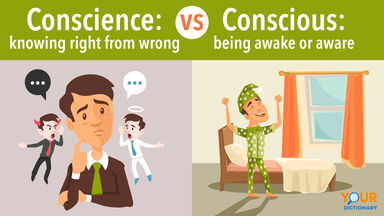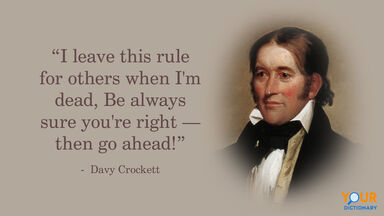Conscience Definition
Other Word Forms of Conscience
Noun
Idioms, Phrasal Verbs Related to Conscience
- in (all good) conscience
- on (one's) conscience
- in (all) conscience
- on one's conscience
Origin of Conscience
-
Middle English from Old French from Latin cōnscientia from cōnsciēns cōnscient- present participle of cōnscīre to be conscious of com- intensive pref. com– scīre to know skei- in Indo-European roots
From American Heritage Dictionary of the English Language, 5th Edition
-
From Old French conscience, from Latin conscientia (“knowledge within oneself”), from consciens, present participle of conscire (“to know, to be conscious (of wrong)”), from com- (“together”) + scire (“to know”).
From Wiktionary
Related Articles
Conscience Is Also Mentioned In
Find Similar Words
Find similar words to conscience using the buttons below.





